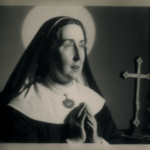St. Charles Lwanga and Companions
St. Charles Lwanga and Companions
- When he lived: St. Charles Lwanga lived from 1860 to 1886.
- Where he lived: St. Charles Lwanga lived in the Buganda Kingdom, which is modern-day Uganda in East Africa.
- Notable world events during the time of his life:
- The American Civil War (1861–1865): One of the deadliest conflicts in the history of the United States, this war was fought over issues of slavery, states’ rights, and political power.
- The Completion of the Suez Canal (1869): This canal is a man-made waterway in Egypt connecting the Mediterranean Sea to the Red Sea, significantly reducing the maritime travel distance between Europe and Asia.
- Franco-Prussian War (1870–1871): This conflict led to the unification of Germany under Prussian King Wilhelm I and the downfall of Napoleon III.
- Alexander Graham Bell Invented the Telephone (1876): This invention revolutionized communication, eventually leading to the interconnected world we live in today.
- Thomas Edison Invented the Phonograph (1877): This was the first device capable of recording and replaying sound, marking a significant breakthrough in technology.
- Eruption of Krakatoa (1883): This volcanic event in Indonesia was one of the deadliest and most destructive volcanic eruptions in recorded history, affecting global weather patterns for years after the eruption.
- The Berlin Conference (1884–1885): Known as the “Scramble for Africa”, this meeting between European powers marked the start of a period of heightened colonial activity in Africa, dramatically impacting the continent’s future.
- His patronage: St. Charles Lwanga is recognized as a patron of youth and Catholic action in Uganda. He is also considered a patron of converts and torture victims due to his experiences.
Planting the Seed
It began in 1879 when the Society of Missionaries of Africa, known as the White Fathers, entered a country in Sub-Saharan Africa. They had only two missions: to educate the children of the region and to spread the Christian faith.
Fortunately for the White Fathers, they met a willing ally in King Mutesa of Uganda. King Mutesa treated the missionaries with kindness.
In six years, the fathers had raised a community of Christian converts, educating and baptizing the new faithful. The converts were groomed to take on new converts. Many page boys in the king’s court converted to Catholicism.
When King Mutesa passed away and his corrupt son Mwanga replaced him, the White Fathers were expelled from Uganda. Unknown to the new king, the Catholic faith (seed) had already been planted, never to be uprooted.
In secret, Uganda witnessed a growing number of Christians, Catholics, and Anglicans alike.
Battle for the Soul of the Church
Proverbs 29:2: But when the wicked man rules, the people groan. Under King Mwanga, the Christian community in Uganda groaned.
King Mwanga engaged in rituals. He also sexually forced himself on the young ladies in his court. To refuse the king means to die. Threatened by the authority the Christian faith poses and teaches, King Mwanga began persecuting the believers and promoters of Christ.
The first casualty was a visiting Anglican bishop in Uganda. Joseph Mukasa, chief steward and friend to the king, had condemned the killing of the bishop.
Joseph served as a Catholic community leader for about 200 faithful. He had always protected the pages under his care from the king’s lust. On November 15, 1885, he was beheaded for speaking the truth to the king.
The king ordered that Charles Lwanga, the top page, quickly take over Joseph’s position as the chief steward.
Who Was Charles Lwanga?
Born Kaloli Lwanga on January 1, 1860, of the Baganda tribe, today in central and southern Uganda, He became a Catholic convert upon encountering the White Fathers and has never looked back.
Lwanga was one of the page boys in King Mwanga’s court. When he was 25, he became a chief page and used his position to shield the boys (13–30) under his protection from the King’s sexual exploitation.
On the night of Joseph Mukasa’s death, Lwanga took with him some page boys and sought the White Fathers in secret for baptism, fearing their own death without baptism.
He was baptized by Pere Giraud and took the name Charles. In the next week, Charles helped 100 more get baptized. He took over the role of organizing and teaching the Catholic community. Charles strengthened the boys’ faith by remaining chaste and faithful to God.
We Live and Die for Christ.
When King Mwanga found that some of the page boys were being taught the catechism, he called for a general assembly on May 25, 1886, while at Munyonyo. He sentenced two boys to death.
The following day, Charles secretly baptized two of the boys under him who were still catechumens.
King Mwanga called for all the page boys and attendants in his court. He asked that the Christians be separated from the pagans and promised to spare anyone ready to renounce the Christian faith.
A total of 15 boys stepped forward as Christians, led by Charles. Infuriated by their courage, he condemned them to death. The boys were tied up and marched to Namugongo, the place of execution.
Pontian Ngondwe, Athanasius Bazzekuketta, and Gonzaga Gonza were murdered on their way to the execution site. Arriving at the execution camp, they were left for 7 days while the stake was prepared.
Martyrs of Uganda
Pope Paul VI canonized them as saints and martyrs.
5 Interesting Facts About St. Charles Lwanga and His Companions
What a fantastic day to die! Charles Lwanga was killed on the morning of the Feast of Ascension, and his companions later in the evening. They died to rise with Christ.
St. Charles Lwanga and his companions became the first martyrs of Sub-Saharan Africa. Brave young men, they faced death.
To honor the sacrifice of these courageous martyrs, Pope Paul VI became the first Pope to visit Uganda. He made a pilgrimage to the site of their martyrdom.
Cheerful in death? The last words of Charles Lwanga as the fire burned him alive were KATOUNDA!, which means My God.
Tertullian said, ‘The blood of the martyrs is the seed of the church.’ These words couldn’t be more true for the martyrs of Uganda. Today, the Basilica of Uganda stands on the site where the martyrs’ blood was shed.
Prayer To St. Charles Lwanga and Companions
O God, who has made the blood of Martyrs the seed of Christians, mercifully grant that the field that is your Church, watered by the blood shed by Saints Charles Lwanga and his companions, may be fertile and always yield you an abundant harvest. Through our Lord Jesus Christ, your Son, who lives and reigns with you in the unity of the Holy Spirit, one God, forever and ever Amen.
(from The Roman Missal)



